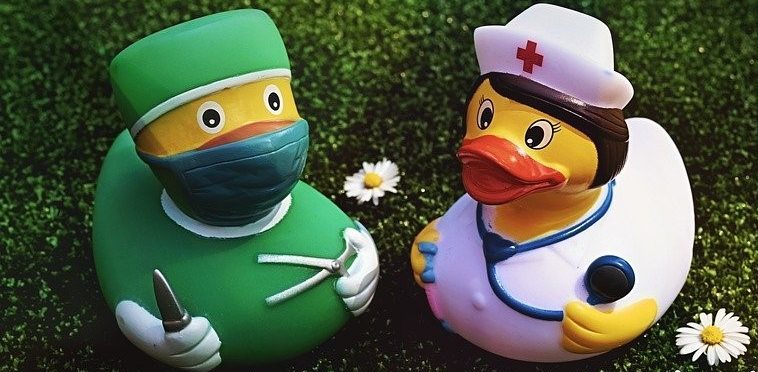On Thursday 28th May 2020, at 8pm, Britain once again took to its streets, balconies, gardens and windows to show gratitude for our NHS. Since early March, the weekly display has grown in numbers, grown in volume and grown in meaning.
Our regular show of unity has reached its end, but for several minutes once a week, our usually deserted streets have sprung into life to show thanks to those who have gone above and very much beyond. In times of darkness, the world has looked for heroes. On Thursdays, we have been reminded that they’re all around us.
To all the doctors, nurses, midwives, paramedics, pharmacists, physios, OTs, ODPs, optometrists, carers, therapists, radiographers, cleaners, social workers, dieticians, health visitors, admin teams, district nurses, porters, podiatrists, kitchen staff, health care assistants, biomedical scientists. Thank you. Tens of millions of British people are inordinately proud and thankful.
Since the pandemic began, celebrities, businesses, charities, athletes, the wider public and even royalty have lined up to help. From volunteering, donating and fundraising, to free meals, free parking and even hotel rooms, millions of small acts of kindness have turned into one, big collective effort. Many initiatives have sprung up to help with the little things, such as cutting down queueing time at the supermarket. Rainbow paintings have been hung from windows across the nation by children who, despite not being able to comprehend the challenges and dangers we face, nonetheless know exactly who is looking out for us.
It’s been easy to feel useless, but in rallying around our health workers in any way possible, we’ve been reminded that we all have a role to play. No matter how bleak everything may seem, there are always good people doing good things.
So, what next? It’s clear that once this is all over, whenever that may be, our debt of gratitude must be repaid in even more meaningful ways.
As the extreme pressure on the NHS begins to ease, we are only now beginning to grasp what has been asked of our health service and its workers. Facing global pandemic, dwindling supplies of personal predictive equipment, traumatic working environments and immediate personal danger, it’s clear they deserve better.
If any lasting positive can come out of this, it’s knowing that we can never again allow such a vital public service to be neglected, undermined or unloved. Our reliance on it has shown there’s never been a better time to reassess the value of our health services and the importance of safeguarding them.
If the coronavirus outbreak has taught us one thing, it is that universally available health care, free at the point of delivery, is something worth fighting for. It’s also obvious that the NHS is filled with people whose worth needs to be far better recognised. We can’t go back to a world where we don’t invest in our public services, but expect our frontline services to protect us.
As Dr. Joel Schamoth wrote in The Guardian, crisis creates an opportunity for new beginnings and reinvention that is rarely possible during ordinary times. The current public health crisis and outpouring of social solidarity with the NHS present an incredible chance to reimagine how this magnificent yet flawed institution operates. in a few short months, Covid-19 has shown us that change is possible.
As reported in The Times, this crisis also represents a vital opportunity to make the NHS a better place to work. Wellbeing and mental health initiatives have sprung up overnight to support the Covid-19 response; a vital drive that must become embedded. Even more will be required to repair morale, which hit rock bottom long before Covid-19. Concerns over working conditions plague the health service. Pay has continued to fall in real terms and, along with burnout and exhaustion, we’ve seen an unprecedented turnover of frontline staff.
To make the NHS more effective, we cannot ignore politics. From privatisation to underfunding, our response to Covid-19 was compromised before it began. Going forward we must demand from our representative’s policies that no longer leave the service understaffed and overstretched.
This pandemic will leave a lasting legacy. The NHS can be either a health system diminished by the strain it was put under, or follow a different path, where we harness this crisis for positive change to ensure the NHS is transformed for the better.
ABL Recruitment team








